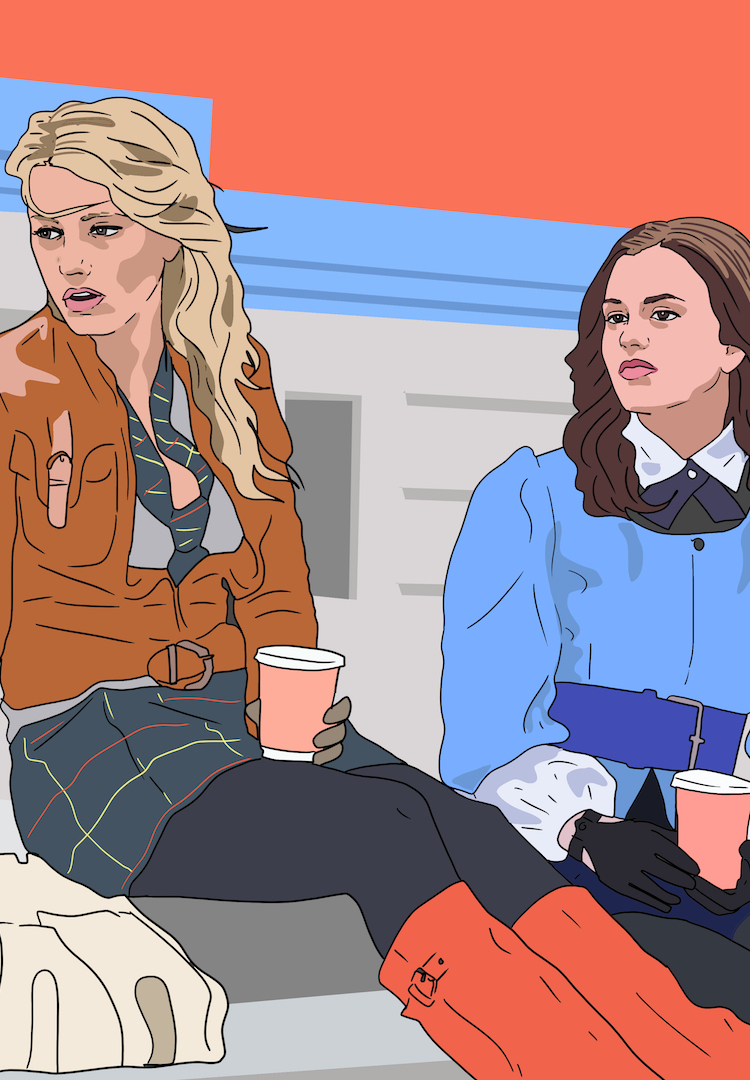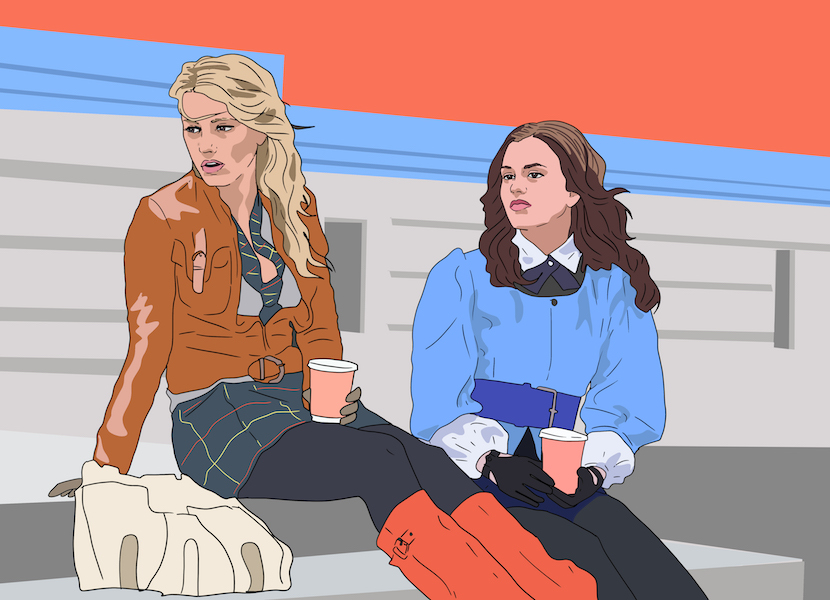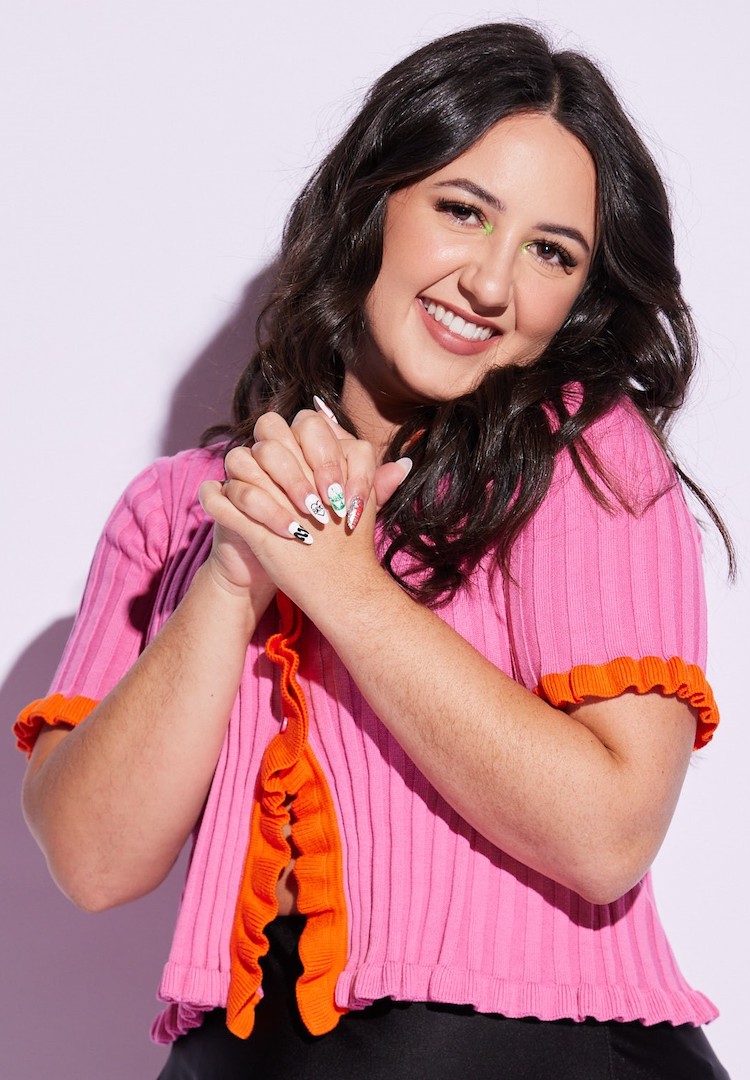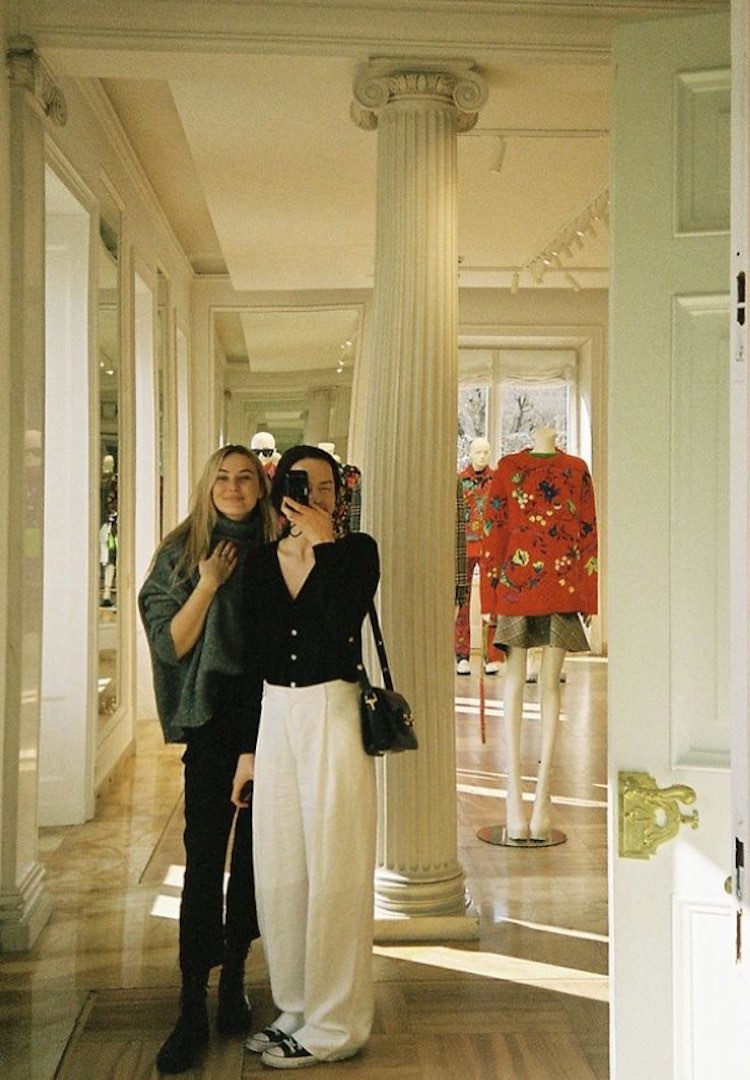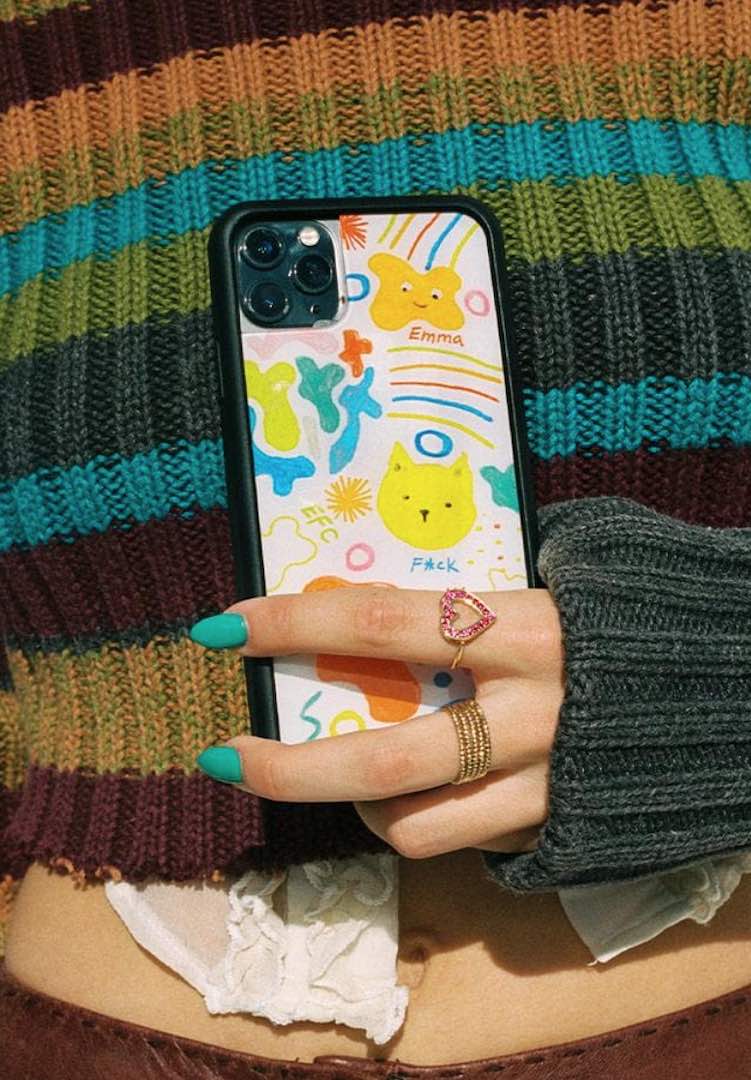I Don’t Know How I Feel About: ‘Gossip Girl’ coming back
Illustration by Twylamae
Words by Sasha Gattermayr
The reboot nobody asked for.
The Internet exploded last Friday with an announcement from HBO that a revival of beloved noughties series, Gossip Girl, would grace our screens.
But amongst the Internet excitement, the more I thought about it, the more misgivings I had.
Gossip Girl represented a lot of what is bad about the world. As Frank Ocean said, it’s just super rich kids with nothing but fake friends. And while that premise glittered with the decadent promise of deep psychological conflicts and Marissa Cooper-worthy poolside meltdowns, the original Gossip Girl failed to mine the glamour beyond its sheen.
Apart from cyber-bullying, regular bullying, nepotism, corruption and the glorification of a capitalist oligarchy, the storylines just weren’t that good. As iconic and somewhat believable as Jenny Humphrey’s descent into a post-punk hellfire of bitchiness and bad eye shadow was, the arcs of every other character were muddled and chaotic. There was no coherence between why Blair and Serena were friends in one episode and arch-nemeses the next. There was no logical cause and effect as to why Vanessa did anything. Nate didn’t even have a character.
The closest the series came to emotional complexity was in Chuck Bass, the hedonistic boy-heir whose loveless childhood made him simultaneously crave intimacy and reject it. The redeemed misogynist. The date rapist with a heart of gold.
Will the goings-on of Manhattan’s elite be able to mature the way we have grown accustomed to our television being in the time since the original series finished? Mercifully, at least, the reboot will ditch the Sidekicks and enter our technological dimension with ten, one-hour episodes.
Capitalising on the appetite for shorter, binge-enticing TV fare, the condensed format will be a welcome departure from the 22-episode melodrama the series used to be. One way to ensure the eventual disintegration of a character is to drag their storyline out for close to the time it takes for the Earth to do a full rotation on its axis.
Teen television has learnt from the mistakes Gossip Girl made. We now have The Chilling Adventures of Sabrina, The End of the F**king World and Sex Education leading the pack of high-budget projects with #woke high schoolers.
Where does a Gossip Girl reboot sit in this new terrain?
“The series will address just how much social media – and the landscape of New York itself – has changed in the intervening years,” original showrunners Joshua Safran, Josh Schwartz and Stephanie Savage said of the show’s iOS update.
I, however, have my reservations. The invention of Instagram doesn’t re-contextualise the entire premise of the show. The things that were bad about Gossip Girl will remain bad in a reboot. Much like Rufus’ season 3-4 stagnation as Upper East Side trophy husband, attempting to reanimate a corpse with the lifeblood of faded glory never ends well.
Let’s hope the new series can take its audience more seriously and face up to an Internet-literate generation of young people who are more conscious and more vocal than ever before. No more will viewers accept the roundabout implications of eating disorders that are breezily glossed over for the sake of B and S’s friendship #squadgoals.
We see your shallow virtue signalling and raise you an Instagram call-out.
No longer will a contemporary audience accept the shock value of Serena’s false teen pregnancy as a legitimate plot twist, or her unresolved substance abuse problems as passable narrative tension.
Gossip Girl signified the doldrums of late ’00s teen television that had no space between Buffy and Breaking Bad to work out what the hell its audience wanted it to tell them. It fed a mirage of upper-class adulthood for a teenage viewership that was primed by Skins and The O.C.
Yet The O.C. achieved what it’s snobby East Coast reprise never managed: its characters were flawed but likeable. You sympathised with the spoilt rich kids who had everything except parental affection. Yes, their lives were kind of empty. But at least they knew it.
The Humphreys’ Dumbo loft and has-been musician cool-dad were no match for the genuine class disparity between Chino and Newport.
In Gossip Girl, the rich stay rich and the poor get rich too because, really, it’s an underdog tale of how Dan Humphrey bit, clawed and ravaged his carnivorous way to the top of New York City’s social food chain. Not only was the show spruiking a terrible message at times, but the message didn’t even make sense (*cough* Lonely Boy is GG and no one really cared *cough*).
All’s well that ends in zero consequences for Manhattan’s elite.
My point is, TV has come a long way since 2012. I think the world has moved on from fantasising about how the other half live in their fancy floating kingdom. We now have Fleabag and Dear White People, Girls and Broad City, and audiences expect more. There is still a place for trashy television, but not when it attempts to masquerade as meaningful.
Or maybe I’m wrong and we’ll never get sick of watching rich kids screw each other over.
But unless the new generation of Upper East Siders can give us a raison d’être beyond how shit teenagers and their technology can be, I don’t know if it has a seat at this high-stakes teen television table.
Like Chad Michael Murray and mullet layers, some things are best left to the faux pas of bad taste past.
As Georgina Sparks said when she escaped from Bible Camp at the end of season two and revealed she was not, in fact, a born-again Christian: “You can tell Jesus that the bitch is back.”
The question is, do we still care?


